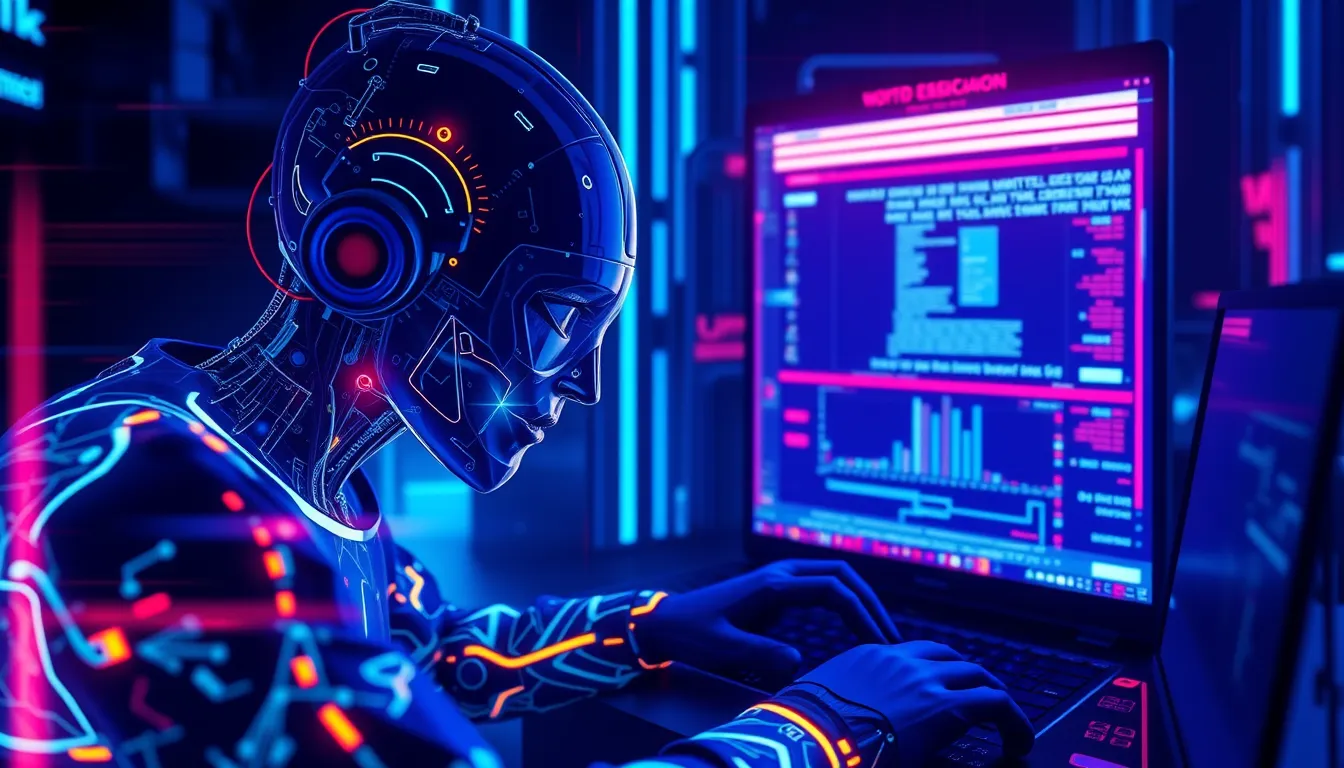Now Reading: Powerful AI in Healthcare Diagnostics: Boosting Patient Care
-
01
Powerful AI in Healthcare Diagnostics: Boosting Patient Care
Powerful AI in Healthcare Diagnostics: Boosting Patient Care

Powerful AI in Healthcare Diagnostics: Boosting Patient Care
Introduction
The rise of technology has significantly transformed many sectors, especially healthcare. In this article, we explore how AI in healthcare diagnostics is breaching new frontiers, enhancing accuracy in medical imaging, and ultimately boosting patient care. With the advancements in AI, medical professionals now have innovative tools at their disposal to detect diseases early and accurately, leading to more effective treatments.
The Role of AI in Healthcare Diagnostics
AI in healthcare diagnostics is revolutionizing the medical field by improving diagnostic accuracy and aiding decision-making processes. These intelligent systems analyze vast amounts of data, recognize patterns, and provide insights that were once impossible for humans to deduce quickly. This not only reduces the margin for error but also enhances the speed at which diagnoses can be made.
Key benefits include:
- Improved diagnostic accuracy
- Rapid analysis of large datasets
- Support for medical professionals in complex cases
How AI Improves Diagnostic Accuracy
One of the central topics in modern healthcare is how AI improves diagnostic accuracy. It integrates machine learning algorithms to examine medical images, genetic markers, and patient histories to identify subtle cues that may indicate early disease stages. For example, AI in healthcare diagnostics helps in pinpointing anomalies in X-rays and MRIs that might be missed by the human eye. Hospitals are reporting fewer misdiagnoses and a significant reduction in average waiting times for test results.
Furthermore, AI systems are continuously learning. With each case, they become more efficient, which translates to even better diagnostic performance over time. This technology empowers medical practitioners by providing a second opinion, thereby reducing diagnostic fatigue and the likelihood of human error.
The Impact on Medical Imaging and Disease Prediction
AI medical imaging is another area where these technologies shine. By transforming how images are processed and analyzed, AI in healthcare diagnostics offers a more nuanced view of patient health. Innovations in imaging technologies, paired with AI, ensure that even the smallest irregularities are detected. This promising integration also supports AI disease prediction, enabling early intervention strategies that can save lives.
The impact is clear:
- Enhanced imaging clarity
- Faster diagnostic processes
- More accurate disease prediction
These improvements not only bolster patient outcomes but also streamline internal hospital workflows, reducing overall costs and resource strains.
Addressing Challenges and Enhancements
Although AI in healthcare diagnostics presents numerous advantages, it also comes with challenges. The integration of AI systems requires substantial investment in training, data security, and system upgrades. Additionally, healthcare providers must overcome regulatory hurdles and ensure that AI tools comply with privacy standards such as HIPAA in the United States or GDPR in Europe.
To address these challenges, collaborations between tech companies, medical institutions, and regulatory bodies are essential. Organizations like the American Medical Association and the European Society of Radiology are continuously working on guidelines that can ease the safe adoption of AI-driven technologies in clinical settings.
Success Stories and Case Studies
Many hospitals and clinics are already enjoying the benefits of AI in healthcare diagnostics. For instance, a renowned hospital in Boston implemented an AI diagnostic tool that resulted in a 25% reduction in diagnostic errors. Similarly, research institutions in Europe have started using AI to predict disease outbreaks months before they become severe.
Case Study Highlights:
- A mid-sized hospital improved its diagnostic turnaround time by 30% using AI-powered imaging tools.
- A research initiative in Germany utilized AI to predict cardiovascular diseases, dramatically reducing emergency incidences.
For more detailed insights, you can refer to trusted sources like the official website of the National Institutes of Health (https://www.nih.gov) and reputable tech news outlets.
Future Trends in AI-Driven Healthcare
The future of AI in healthcare diagnostics looks promising. As algorithms become more sophisticated and data pools grow larger, the potential for breakthroughs in early detection and treatment personalization will only increase. The integration of AI with other emerging technologies like blockchain and advanced robotics can further revolutionize patient management systems.
Continued investments in research and development are crucial. Hospitals and tech companies must work closely to innovate and implement newer solutions. This synergy ensures that AI remains a critical asset in the fight against diseases while navigating challenges such as security and ethical concerns.
Conclusion
In summary, AI in healthcare diagnostics is not just a technological evolution—it is a revolution that is fundamentally changing patient care. From improving diagnostic accuracy and medical imaging to enabling precise disease prediction, AI serves as a powerful ally to medical professionals. By addressing existing challenges and leveraging proven success stories, the healthcare industry can unlock a future where technology and medicine converge seamlessly for optimal patient outcomes.
Internal and External References
- For further reading on AI breakthroughs, check out our internal article on the evolution of medical technology.
- Visit the official website of the National Institutes of Health (https://www.nih.gov) for validated health information and resources.
This comprehensive overview underlines the importance of embracing AI in modern healthcare, as continuous improvements in AI in healthcare diagnostics pave the way for enhanced medical practice and better patient care outcomes.

























